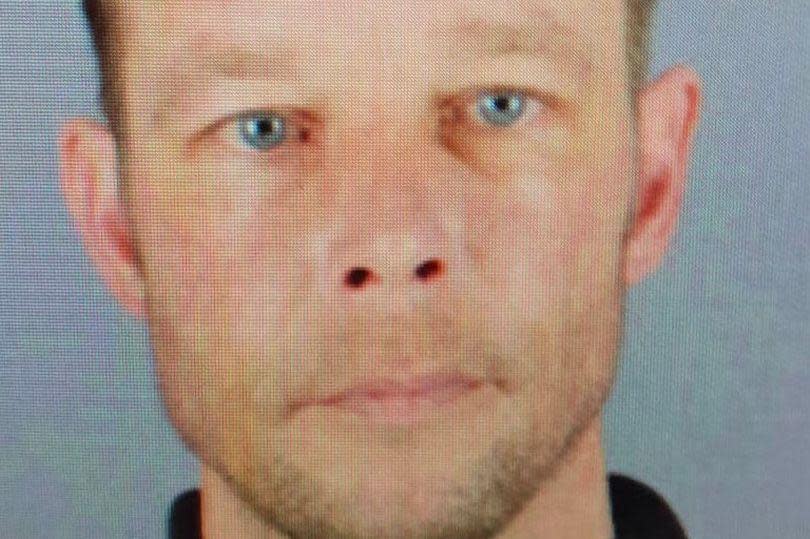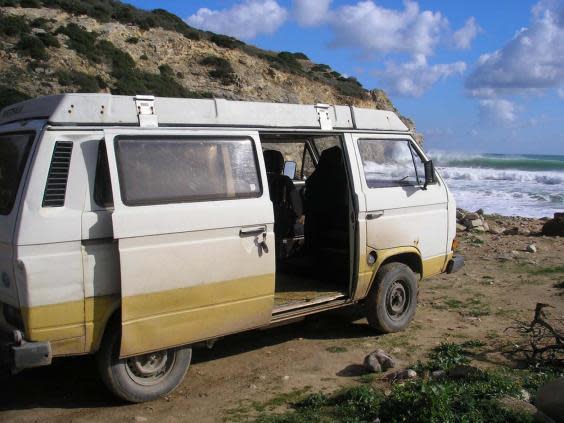Madeleine McCann suspect Christian Brueckner ‘had moved to Portugal to flee prison sentence’ in Germany

The German suspect investigated over the disappearance of Madeleine McCann originally moved to Portugal to flee a prison sentence, it has been reported.
Christian Brueckner, now 43, was 18 when he moved to the Algarve with his then-girlfriend in 1995.
According to official documents viewed by German media, his first conviction for child sex offences happened the previous year and he was handed a two-year juvenile sentence.
Aged 17, Brueckner had abused a six-year-old girl in a playground and exposed himself to a nine-year-old in Bavaria, Bild reported.
His trial last year, where he was convicted of raping a 72-year-old American woman in 2005, heard that he moved to Portugal shortly after his conviction because he was in trouble with the law and did not want to go to jail. It is unclear if he served any time in prison, or what exactly the two-year juvenile sentence consisted of.
“We didn’t know anything about Portugal,” he told the court, according to the Braunschweiger Zeitung.
“We went to Lagos because we liked the name so much. We had a tent with us and camped in the wild.”
Phone records allegedly show that Brueckner was near the McCanns’ holiday apartment an hour before Madeleine disappeared on 3 May 2007.
He is believed to have spoken about Madeleine in an internet chat and told a friend he knew what happened in a bar a decade later.
Police said the suspect lived in Portugal between 1995 and 2007, apart from brief spells in Germany.
In 1999 Brueckner was arrested by Portuguese police and sent back to his home country to serve a youth sentence.
He is believed to have served prison sentences in Portugal, where he was known to police for drug dealing and breaking into holiday apartments and hotels.
Back in Germany in 2011, he was sentenced for trafficking narcotic drugs, and then in 2016 he was convicted for child sex abuse and possessing indecent images.
His reported total of 17 previous convictions also include theft and forging documents.
In December last year, Brueckner was convicted of the 2005 rape in Portugal and jailed for seven years, but the sentence has not yet been imposed because of an ongoing appeal.
He is currently serving an unrelated sentence for drug trafficking in the northern German city of Kiel.
German court documents show that he has served two-thirds of that sentence and can be considered for parole from Sunday onwards.
But even if a judge decides to release him on probation for the drugs offence, he will remain in custody over the rape case.
Brueckner appealed over that conviction to Germany’s Federal Court of Justice, which referred it to the European Court of Justice.
He claims his extradition to Germany under a European Arrest Warrant (EAW) was unlawful because it related to the drug charge rather than the rape.
Brueckner had fled to Italy and was found in Milan in September 2018.
Under the principle of “specialty”, extradited people can normally only be prosecuted for the crime for which the EAW was granted.
The European Court of Justice received the case on 8 May and The Independent understands that as it was filed under the “urgent preliminary ruling procedure”, a decision will be made between three to six months from that date.
The Metropolitan Police admitted that Brueckner had been among 600 people previously considered potentially significant in the McCann inquiry.
But investigators said he was not considered a suspect until new information was received in response to an appeal made on the 10th anniversary of her disappearance in 2017.
They did not disclose what that information was, but Sky News reported that Brueckner himself had told a friend that he knew what happened to Madeleine in a Portuguese bar.
“A report came on the TV about the anniversary of Madeleine’s disappearance and he said something to suggest that he knew what happened,” said the network’s crime correspondent Martin Brunt.
“He also allegedly showed a video of himself raping a woman. Video of the rape led to an investigation that last year meant he was convicted of the rape of a tourist on the Algarve in around 2005. That is what brought him back into the frame.”
The attack happened in Praia da Luz in September 2005, a year-and-a-half before Madeleine went missing nearby.
Brueckner is believed to have filmed himself beating and raping the 72-year-old victim, who was tied up, on a video camera that was later stolen by an acquaintance.
The man, who said there was also footage of a young woman being abused, later came forward to German police.
A former neighbour who lived near the suspect in Braunschweig, Germany, described him as “aggressive” and abusive towards women.

He told Bild that he had an underage girlfriend from Kosovo around 2015, adding: “He always beat her. Once, she even had strangle marks on her neck.”
Germany’s Federal Criminal Police Office (BKA) admitted that it first received information linking Brueckner to Madeleine’s disappearance in 2013, following a television appeal by her parents.
But a senior officer said it was not sufficient to trigger an investigation and “certainly not for arrest”.
The BKA is leading the investigation, which it is treating as a murder inquiry.
“There is reason to assume that there are other persons, apart from the suspect, who have concrete knowledge of the course of the crime and maybe also of the place where the body was left,” a statement said. “We explicitly ask these persons to contact us and provide information.”
The Metropolitan Police said they were still treating the case as a missing person investigation, and that they had no “definitive evidence” indicating whether Madeleine is alive or dead.
“As the years go on, we are realistic about what we might be dealing with but there is always hope,” said Deputy Assistant Commissioner Stuart Cundy.
“We are asking the public for help to prove or disprove whether this man was involved in Madeleine’s disappearance.”
“We retain an open mind about his involvement and we will follow the evidence wherever it may take us.”
Investigators are appealing for information on a campervan, car and mobile phone number linked to him that could be “critical” for the case.
Police are seeking information on:
A VW T3 Westfalia campervan. Early 1980s model, with two tone markings, a white upper body and a yellow skirting. It had a Portuguese registration plate.
A 1993 British Jaguar, model XJR 6, with a German number plate and registered in Germany.
The phone number +351 912 730 680, which was being used by the suspect.
The second number is +351 916 510 683, which called the suspect on the night of Madeleine’s disappearance.
The Operation Grange incident room can be contacted via 0207 321 9251 or operation.grange@met.police.uk.
Read more
German suspect could be last chance for Madeleine McCann investigation
Madeleine McCann suspect battling to be freed from German prison
‘We believe Madeleine McCann is dead’ say prosecutors as suspect named

 Yahoo News
Yahoo News 